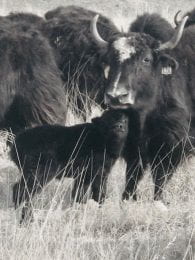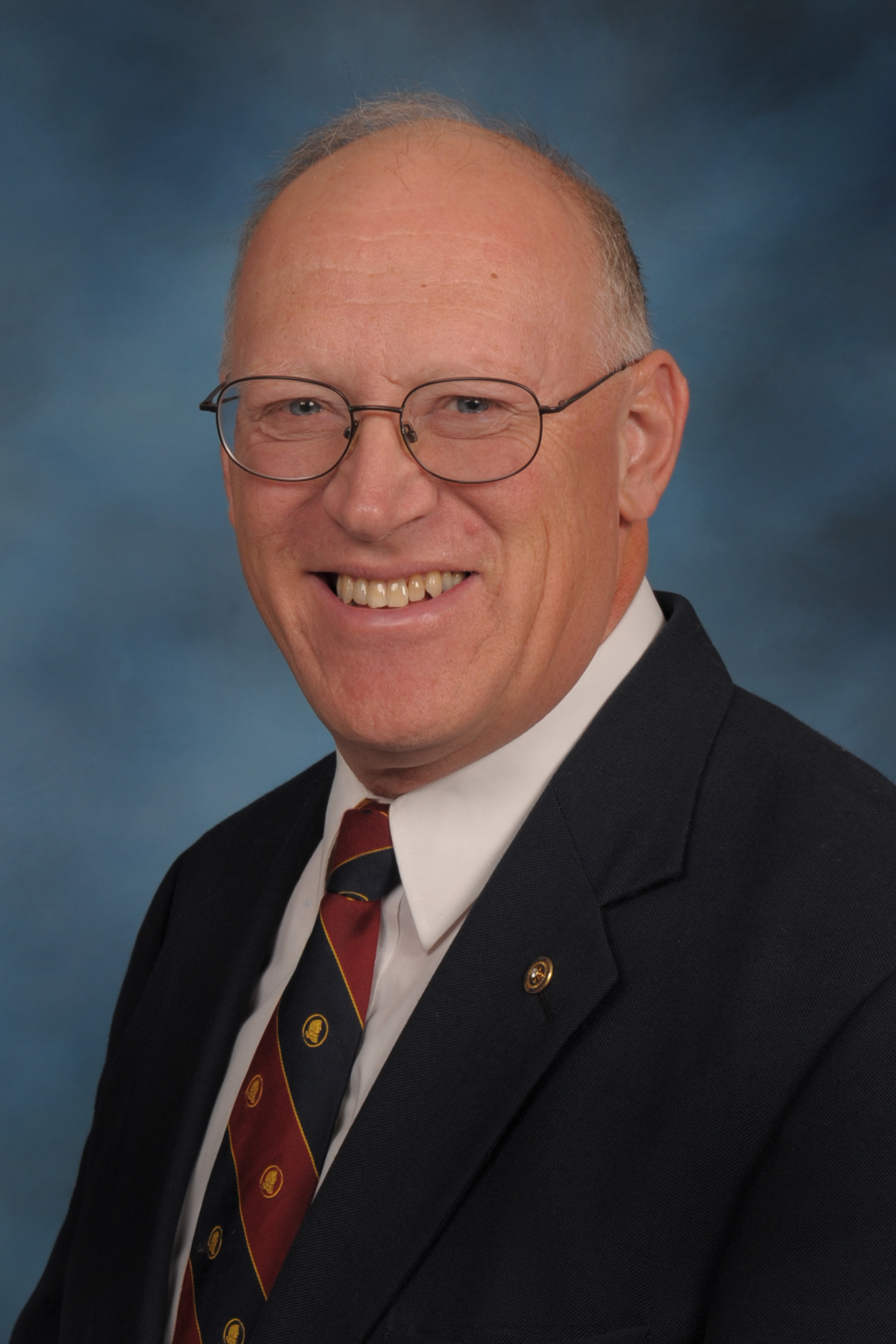Yak, yak, yak. That might be a teenager’s description of the sound of some long-winded grownup – such as me. But yaks are actually a type of cattle. These animals originated in the Himalayas thousands of years ago. Now they are being raised and marketed by an innovative couple in rural Kansas. Many thanks to Carolyn Applegate and Norton County magazine for this story.
Stephanie and Doug David are the owners of Bow Creek Ranch  in Norton County. Doug grew up here and met and married Stephanie who is from Nebraska. They farm and raise Angus cattle near Lenora.
in Norton County. Doug grew up here and met and married Stephanie who is from Nebraska. They farm and raise Angus cattle near Lenora.
“In 1997, I was at the Denver stock show,” Doug said. The stock show was hosting a specialty animal sale where yaks were being sold
“I tried the yak meat and really liked it,” Doug said. He decided to try raising them.
Yaks are an unusual kind of bushy-haired bovine with handlebar-shaped horns and massive shoulders. As mentioned, they originated in the Himalayan mountains of Tibet. Tibetan culture revolves around the yak, similar to how Native American Plains Indian culture revolved around the buffalo. However, yaks are not related to the American buffalo, which are technically bison.
Today, Stephanie and Doug have 200 head of yak to go with their registered quarter horses and Angus cattle at Bow Creek Ranch, along with their retail meat business.
“We have breeding yaks and meat yaks,” Stephanie said. “We sell a full line of their meats and all-natural beef from our Angus herd.”
The yaks are a multi-purpose animal. Their soft undercoat of hair is used for fiber, but they are not shorn like a sheep. Instead, special brushes comb out the hair. The Davids have this fiber processed in Phillipsburg at the Shepherd’s Mill store, which we have previously featured.
The soft cashmere-like yak fiber can be used for weaving or knitting. “It started with yak woolen socks,” Stephanie said. “Now it’s being used for sweaters, jackets, gloves and beanies. There is no lanolin in the fiber. People who are allergic to wool can wear our clothing.”
Yak milk is high in butterfat and is said to produce exceptional cheeses, butter, and yogurt. Yaks can even be used as pack animals. Then there is the meat.
“Yak meat is naturally redder and sweeter than beef,” Doug said.
“It also offers a health benefit,” Stephanie said. Yak is estimated to be better than any other meat except ground turkey when it comes to cholesterol.
“We like to take the yak meat to weekend shows,” Stephanie said.
“Once you get someone to try it, most people like it,” Doug said. The Davids have their yak meat processed into traditional meat cuts as well as summer sausage, jalapeno sausage, ring baloney, sticks, and jerky. It is all-natural. The Davids have shipped yak meat to every corner of the U.S., from Vermont to California.
They estimate there were only 600 yaks in North America 30 years ago. Now, there might be more than 5,000. Yaks are said to be easy keepers, which means they eat only a third of what domestic cattle might consume.
As one might expect of a high-altitude animal, yaks do not do well in the southern U.S. “High humidity is not good for the yaks,” Doug said. “From here to Canada, they do really well.”
As one might also expect, the calves are really hardy. “We calve quite a bit in the winter time,” Doug said. They are now using yak bulls on Angus heifers.
Stephanie got involved in promoting this unique animal. In 2017, she became president of the International Yak Association. That’s quite an honor for someone from a rural community such as Lenora, population 235 people. Now, that’s rural.
For more information about yaks, go to www.iyak.org. For more information about the Davids, go to www.bowcreekranch.com.
Yak, yak, yak. No, that’s not just a long-winded grownup. Yaks have increased in number in North America, with benefits for both growers and consumers. We salute Stephanie and Doug David for making a difference with their agricultural innovation. With that, I’ll stop yakking.
Audio and text files of Kansas Profiles are available at http://www.kansasprofile.com. For more information about the Huck Boyd Institute, interested persons can visit http://www.huckboydinstitute.org.
